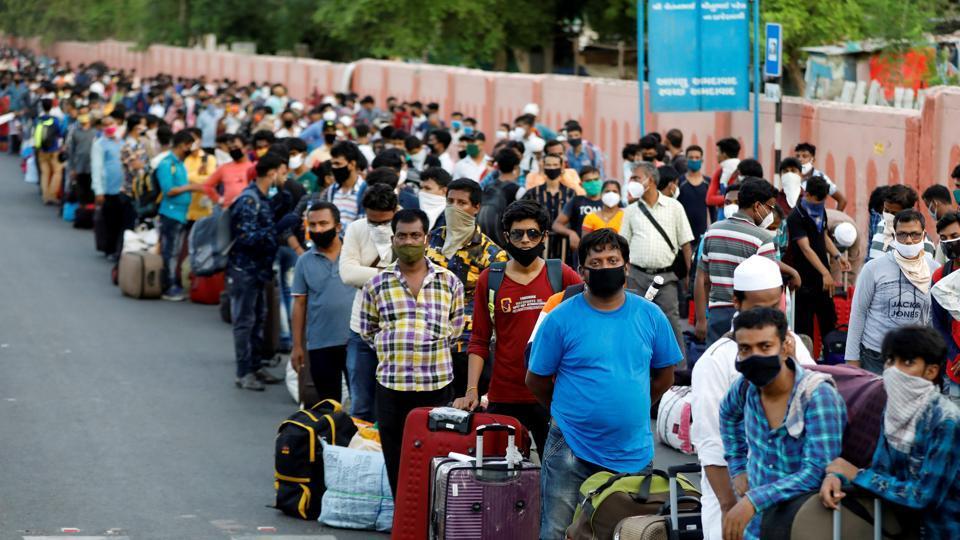prasad1
Active member
Prime Minister Narendra Modi will launch the Garib Kalyan Rojgar Abhiyaan (GKRA), a mission-mode scheme designed to help migrant labourers, on Saturday. The massive public work scheme — details of which were first reported in this newspaper — is worth Rs 50,000 crore and aims to provide job opportunities to returnee migrant workers, in 116 districts of key migrant-originating states (Bihar, Uttar Pradesh, Madhya Pradesh, Rajasthan, Jharkhand and Odisha) for 125 days; merge 25 existing State-run programmes; and create durable infrastructure. The decision to go for construction-focused employment was taken after a skill mapping of migrants showed that more than two-thirds worked in this sector.
The lockdown led to an unprecedented humanitarian crisis, with millions of workers and their families frantically trying to return from their host states, predominantly in west and south India and key urban centres such as Delhi and Mumbai, to their villages in states in the north and east. In May, the Centre hiked the allocation of the Mahatma Gandhi National Rural Employment Guarantee Scheme (MGNREGS) by Rs 40,000 crore, taking the total allocation under the scheme to Rs 1,01,500 crore. But it was clear that MGNREGS was not enough, and the Centre would have to come out with another comprehensive scheme to tackle the crisis. GKRA, if implemented properly, can provide relief to the migrants, many of them landless, without savings and dependent on informal rural financial ecosystems, to sustain themselves and their families for the next few months.

 www.hindustantimes.com
www.hindustantimes.com
The lockdown led to an unprecedented humanitarian crisis, with millions of workers and their families frantically trying to return from their host states, predominantly in west and south India and key urban centres such as Delhi and Mumbai, to their villages in states in the north and east. In May, the Centre hiked the allocation of the Mahatma Gandhi National Rural Employment Guarantee Scheme (MGNREGS) by Rs 40,000 crore, taking the total allocation under the scheme to Rs 1,01,500 crore. But it was clear that MGNREGS was not enough, and the Centre would have to come out with another comprehensive scheme to tackle the crisis. GKRA, if implemented properly, can provide relief to the migrants, many of them landless, without savings and dependent on informal rural financial ecosystems, to sustain themselves and their families for the next few months.

Providing work to migrants | HT Editorial
GKRA can give relief, but more needs to be done
